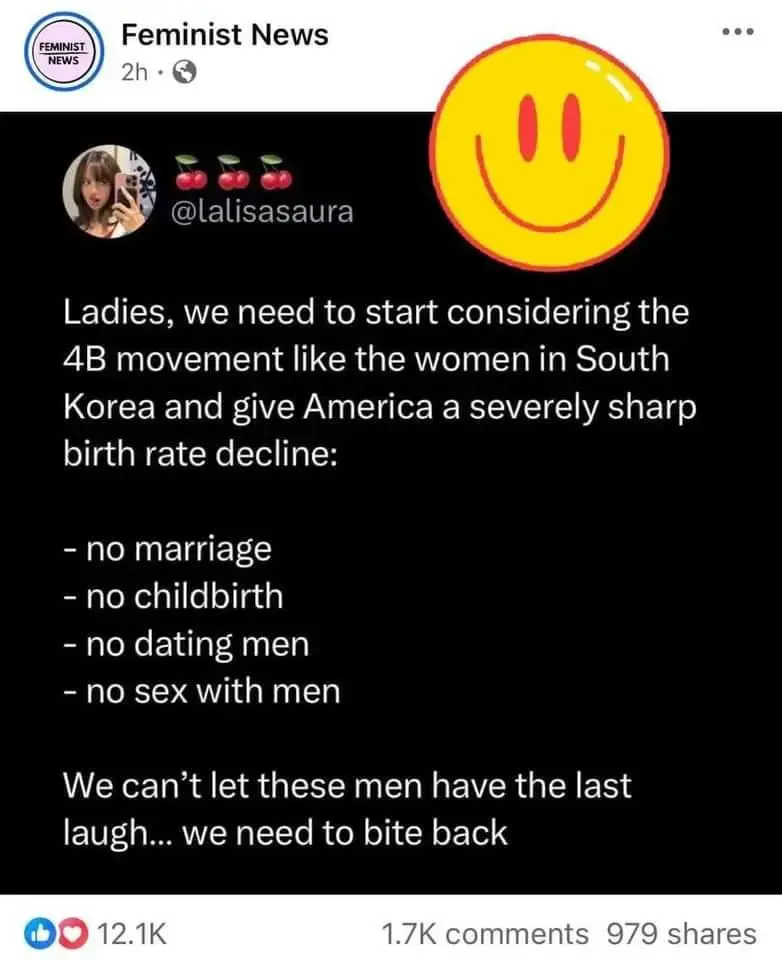this post was submitted on 07 Nov 2024
229 points (99.6% liked)
Politics
10175 readers
152 users here now
In-depth political discussion from around the world; if it's a political happening, you can post it here.
Guidelines for submissions:
- Where possible, post the original source of information.
- If there is a paywall, you can use alternative sources or provide an archive.today, 12ft.io, etc. link in the body.
- Do not editorialize titles. Preserve the original title when possible; edits for clarity are fine.
- Do not post ragebait or shock stories. These will be removed.
- Do not post tabloid or blogspam stories. These will be removed.
- Social media should be a source of last resort.
These guidelines will be enforced on a know-it-when-I-see-it basis.
Subcommunities on Beehaw:
This community's icon was made by Aaron Schneider, under the CC-BY-NC-SA 4.0 license.
founded 2 years ago
MODERATORS
you are viewing a single comment's thread
view the rest of the comments
view the rest of the comments

Fwiw, a common example of a punishment removing something that is desired but not required is temporarily taking away X from a rowdy kid, be it phone, snacks, etc, which does poke a hole in that assertion.
Thank you, I hadn't thought about that, you're right.
Would you say then that that form of punishment only affects someone who believes they are entitled to something they typically get? (I can't see how it would affect someone that doesn't get something, and I don't see how it would affect someone that doesn't feel entitled to it)
Then, in opposition of what I said, I do agree it would punish a subset of entitled men. I will add an edit to what I said if I've understood this correctly.
Yes, I'd agree that for it to be a punishment entitlement would need to be involved - for example nobody feels punished that they didn't win the lotto by buying one ticket.
Entitlement can take the form of the status quo, whether or not that's justified is not a conversation I have enough critical thinking for.
I think what I haven't seen cleared up in this thread is there are actually two reasons for 4b floating around - one is to try and bring about societal change by crashing the birth rate, but the other is simply out of safety and self-preservation of women. If we focus on the latter, it makes sense that women in more dangerous societies will choose 4b more often than those where they feel safer.
The conclusion I come to is that 4b will be more common in states that do not value the bodily autonomy/safety of women, which I'd say largely points to conservative states.
In a way, if safety and bodily autonomy is the reason for choosing 4b, it will self-regulate to not "punish" or affect those who generally vote to pass policies treating women properly.
I think there was some nuance that was lost in the call for "all" women to participate in 4b
Thanks for the clarification, I'd rather not get something wrong because of a misunderstanding.
I definitely agree with you, it seems logical that the 4B movement would become more popular in the areas where there are bigger threats to the autonomy and safety of women, self-preservation (and solidarity for that matter) is an extremely important factor.
That said, I do understand why there is a call for "all" women to participate. Having more women participating across a country seems like it would increase resistance of some members of the national/federal government to stripping away more rights away from women. It's quite a complicated subject.
Agreed on all counts. Thanks for the conversation and differing perspectives. I hope you have a good weekend!
Thank you as well, have a good weekend!